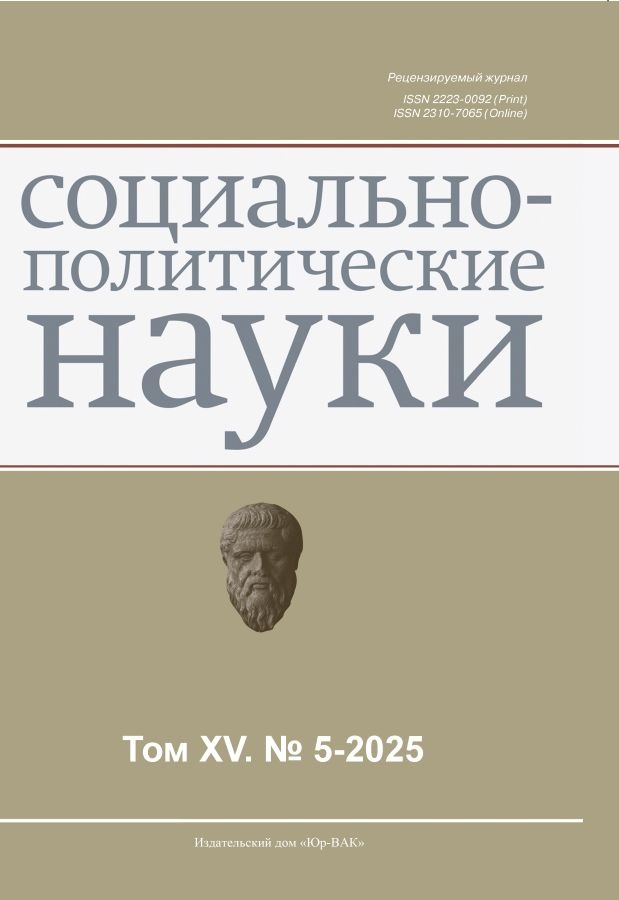Trade Wars as a Tool of Unfair State Policy
- Authors: Soldatov R.G.1,2
-
Affiliations:
- St. Petersburg State University (SPbSU)
- Financial University under the Government of the Russian Federation
- Issue: Vol 15, No 5 (2025)
- Pages: 130-138
- Section: International Relations, Global and Regional Studies
- URL: https://journals.eco-vector.com/2223-0092/article/view/696801
- DOI: https://doi.org/10.33693/2223-0092-2025-15-5-130-138
- EDN: https://elibrary.ru/DNRECN
- ID: 696801
Cite item
Abstract
Purpose of the study. This article discusses the current problems of unfair state policy implemented through the use of economic measures in the form of regulation of duties, tariffs and other restrictions affecting the economic aspects of the activities of subjects of international law. The current political and economic situation associated with the spread of “trade wars” is analyzed. The purpose of this study is to identify the causes and prerequisites of economic conflicts between states, as well as to find ways and methods of solving this problem. Conclusion. As a result of the study, the author comes to the conclusion that there are no international political and economic measures and tools to influence aggressor states that pursue unfair economic policies towards other participants in international relations. To address this issue, it is reasonable to implement a comprehensive modernization of existing international trade and economic relations by creating a modern international regulatory organization in the field of trade relations, endowing it with administrative and authoritative powers over participants in the international market, and making its decisions binding and autonomous. It seems that this organization, provided that it does not have any restraining factors, such as the “veto power”, will be able to prevent the emergence and development of economic conflicts and bring balance to the global economy.
Full Text
About the authors
Robert G. Soldatov
St. Petersburg State University (SPbSU); Financial University under the Government of the Russian Federation
Author for correspondence.
Email: soldatovrobert1@gmail.com
ORCID iD: 0000-0003-3439-3861
SPIN-code: 1797-1810
applicant of Cand. Sci. (Polit.); senior lecturer, Department of Legal Regulation of Economic Activity, Law Faculty
Russian Federation, Saint Petersburg; MoscowReferences
- Knobel A.Yu., Sedalishchev V.V. Risks and benefits for the EAEU from various scenarios of integration in the Asia-Pacific region. Economic Policy. 2017. No. 2. Pp. 72–85. (In Rus.). doi: 10.18288/1994-5124-2017-2-03.
- Kortyens D., Kortyens M. Trade wars. Moscow: William, 2005. 464 p.
- Mytareva E.A. The role of “Trade Wars” in the global economy. In: World economy and society: From crisis to crisis. Part 2. Saratov: Nauka, 2009. Pp. 254–255.
- Yunyushkina A.S., Shapovalova K.A., Katkova E.Yu. The U.S. trade war with China as an attempt to return global leadership. International Relations. 2021. No. 2. (In Rus.)
- Caceres С., Cerdeiro D., Mano R. Trade wars and trade deals: Estimated effects using a multi-sector model. Washington, DC: International Monetary Fund, 2019.
- Haruka Y., Shinichi N. A CGE analysis on trade war. Tokyo: Japan Center for Economic Research, 2019.
- McDonald S., Thierfelder K., Robinson S. Globe: A SAM based global CGE model using GTAP data. Annapolis: United States Naval Academy, 2007.
- Yang Zh. The US-China trade war and global value chains. Washington, DC: World Bank, 2023.
Supplementary files









